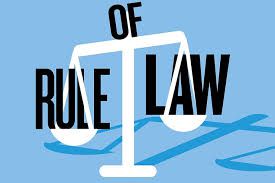Part Of Registered Trademark, Being Common To Trade
The recent legal dispute between the appellant and respondent delves into the
complexities surrounding the use of common terms in trademarks and the
consequent grant of exclusive rights. Central to the case is the appellant's
argument that the term 'PATTA' is commonly used in trade, challenging the
exclusive rights granted to the plaintiff's trademark 'HARA PATTA.' This article
critically analyzes the court's rejection of this argument, highlighting the
statutory considerations under Sections 9, 11, and 31(1) of the Trademarks Act
1999.
Background:
The subject matter at hand involves an appeal filed against the interim injunction granted to the plaintiff, who claims exclusive rights to the trademark 'HARA PATTA.' The plaintiff alleges that the defendant's use of the trademark 'TAZZA PATTA' infringes upon their registered trademark and raises issues related to common usage and the presumption of validity.
Trademark Background:
The plaintiff, engaged in the detergent powder business since 1996 under the 'HARA PATTA' trademark, holds registrations under the Trademarks Act 1999 since 2002 and the Copyright Act 1957. The defendant, involved in a similar business under the 'TAZZA PATTA' trademark registered since 2019, faces allegations of engaging in identical business activities.
Presumption of Validity:
The court acknowledges the statutory presumption of validity under Section 31(1) of the Act for registered marks. However, the court emphasizes that this presumption can be challenged if evidence suggests that the mark was not registrable ex-facie. The plaintiff's trademark, 'HARA PATTA,' was deemed valid under Section 31(1) despite the appellant's argument challenging the common usage of the term 'PATTA.'
Rejection of Common Usage Argument:
The appellant contends that the term 'PATTA' is commonly used in trade, and exclusive rights should not be granted. The court rejects this argument, emphasizing that the plaintiff's trademark, 'HARA PATTA,' does not suffer from any statutory handicaps outlined in Section 9 or Section 11. Consequently, the court rejects the characterization of 'HARA PATTA' as 'publici juris,' asserting that its validity is presumed at the prima facie stage under Section 31(1).
Deceptive Similarity:
The court further dismisses the appellant's claim that the entire 'HARA PATTA' mark is 'publici juris,' limiting this characterization to the term 'PATTA' alone. Consequently, the court finds the defendant's 'TAZZA PATTA' mark deceptively similar to the plaintiff's 'HARA PATTA' mark, leading to the dismissal of the appeal.
The Concluding Note:
This case underscores the futility of argument that only part of registered Trademark being common to Trade. The appellant's contention rests on the assertion that the term 'PATTA' is a common element in trade and, therefore, exclusive rights should not be conferred. The court finds that the plaintiff's mark 'HARA PATTA' does not suffer from any statutory handicaps mentioned in these sections.
The Case Law Discussed:
Case Title: Sai Chemicals Vs Jai Chemical Works
Date of Judgement/Order:17.01.2024
Case No. First Appeal from Order No.1623 of 2023
Neutral Citation: 2024:AHC:7630
Name of Hon'ble Court: Allahabad High Court
Name of Hon'ble Judge: Rohit Ranjan Agarwal, H.J.
Disclaimer:
Ideas, thoughts, views, information, discussions and interpretation expressed herein are being shared in the public Interest. Readers' discretion is advised as these are subject to my subjectivity and may contain human errors in perception, interpretation and presentation of the fact and issue involved herein.
Written By: Advocate Ajay Amitabh Suman, IP Adjutor - Patent and Trademark Attorney
Email: [email protected], Ph no: 9990389539
Background:
The subject matter at hand involves an appeal filed against the interim injunction granted to the plaintiff, who claims exclusive rights to the trademark 'HARA PATTA.' The plaintiff alleges that the defendant's use of the trademark 'TAZZA PATTA' infringes upon their registered trademark and raises issues related to common usage and the presumption of validity.
Trademark Background:
The plaintiff, engaged in the detergent powder business since 1996 under the 'HARA PATTA' trademark, holds registrations under the Trademarks Act 1999 since 2002 and the Copyright Act 1957. The defendant, involved in a similar business under the 'TAZZA PATTA' trademark registered since 2019, faces allegations of engaging in identical business activities.
Presumption of Validity:
The court acknowledges the statutory presumption of validity under Section 31(1) of the Act for registered marks. However, the court emphasizes that this presumption can be challenged if evidence suggests that the mark was not registrable ex-facie. The plaintiff's trademark, 'HARA PATTA,' was deemed valid under Section 31(1) despite the appellant's argument challenging the common usage of the term 'PATTA.'
Rejection of Common Usage Argument:
The appellant contends that the term 'PATTA' is commonly used in trade, and exclusive rights should not be granted. The court rejects this argument, emphasizing that the plaintiff's trademark, 'HARA PATTA,' does not suffer from any statutory handicaps outlined in Section 9 or Section 11. Consequently, the court rejects the characterization of 'HARA PATTA' as 'publici juris,' asserting that its validity is presumed at the prima facie stage under Section 31(1).
Deceptive Similarity:
The court further dismisses the appellant's claim that the entire 'HARA PATTA' mark is 'publici juris,' limiting this characterization to the term 'PATTA' alone. Consequently, the court finds the defendant's 'TAZZA PATTA' mark deceptively similar to the plaintiff's 'HARA PATTA' mark, leading to the dismissal of the appeal.
The Concluding Note:
This case underscores the futility of argument that only part of registered Trademark being common to Trade. The appellant's contention rests on the assertion that the term 'PATTA' is a common element in trade and, therefore, exclusive rights should not be conferred. The court finds that the plaintiff's mark 'HARA PATTA' does not suffer from any statutory handicaps mentioned in these sections.
The Case Law Discussed:
Case Title: Sai Chemicals Vs Jai Chemical Works
Date of Judgement/Order:17.01.2024
Case No. First Appeal from Order No.1623 of 2023
Neutral Citation: 2024:AHC:7630
Name of Hon'ble Court: Allahabad High Court
Name of Hon'ble Judge: Rohit Ranjan Agarwal, H.J.
Disclaimer:
Ideas, thoughts, views, information, discussions and interpretation expressed herein are being shared in the public Interest. Readers' discretion is advised as these are subject to my subjectivity and may contain human errors in perception, interpretation and presentation of the fact and issue involved herein.
Written By: Advocate Ajay Amitabh Suman, IP Adjutor - Patent and Trademark Attorney
Email: [email protected], Ph no: 9990389539
Law Article in India
Legal Question & Answers
Lawyers in India - Search By City
LawArticles
How To File For Mutual Divorce In Delhi

How To File For Mutual Divorce In Delhi Mutual Consent Divorce is the Simplest Way to Obtain a D...
Increased Age For Girls Marriage

It is hoped that the Prohibition of Child Marriage (Amendment) Bill, 2021, which intends to inc...
Facade of Social Media

One may very easily get absorbed in the lives of others as one scrolls through a Facebook news ...
Section 482 CrPc - Quashing Of FIR: Guid...

The Inherent power under Section 482 in The Code Of Criminal Procedure, 1973 (37th Chapter of t...
The Uniform Civil Code (UCC) in India: A...

The Uniform Civil Code (UCC) is a concept that proposes the unification of personal laws across...
Role Of Artificial Intelligence In Legal...

Artificial intelligence (AI) is revolutionizing various sectors of the economy, and the legal i...








Please Drop Your Comments